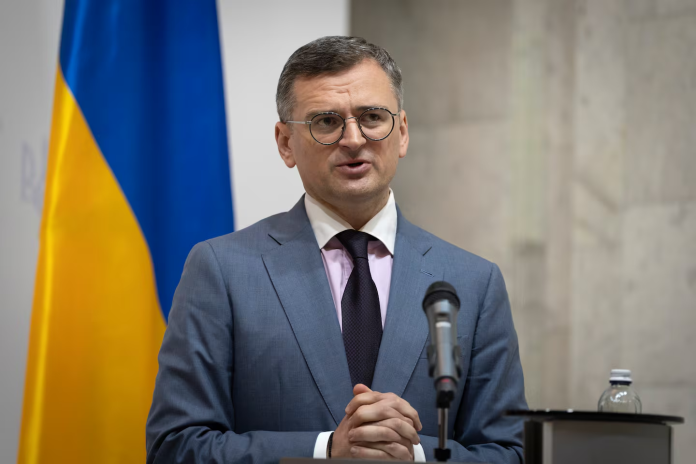Russia launched a missile strike on the city of Poltava, exposing a split among Ukrainian commanders, with ministers starting to resign en masse after doubting their administration.
On Tuesday, 3 September, Russian forces launched a missile strike on the 179 Joint Training Centre of the Armed Forces of Ukraine (AFU) in Poltava. Ukrainian media reported that communications and electronic warfare specialists were being trained there under the guidance of foreign instructors. UAV operators also received training there.
At least 50 people were reportedly killed and 271 injured in the strike by two ballistic missiles, the deadliest attack this year. In addition to the AFU soldiers, several foreign instructors from Sweden also died.
According to media reports, Russia also attacked Ukraine’s defence industrial complexes in Lviv, where specialists were working on repairing electronic components for the AFU’s aircraft and missiles. The strike was carried out with hypersonic Kinzhal systems and drones.
While Ukrainian troops stalled in Russia’s Kursk region in hopes of dispersing the Russian army, groups of Russian troops reported advancing in the Donetsk region. Russian and Ukrainian media reported heavy casualties among AFU soldiers.
Psychological damage
In addition to losses among the Ukrainian military, the strike on Poltava caused a psychological effect. For a long time, Ukraine believed that major cities were reliably protected by hundreds of Patriot defence systems. However, after the strikes on Lviv and Poltava, it became harder for Ukrainian authorities to maintain the view of impregnable cities far from the front line.
Russia also struck an Artem plant in Kyiv on Sunday, raising doubts about the capital’s security.
Later, Russian media reported a strike near the village of Bezdryk, the Sumy region. The intelligence reportedly detected an accumulation of equipment and Ukrainian soldiers. As a result, Russia launched a strike, destroying military equipment and about 70 people, which was also confirmed by Ukrainian sources.
Ministers leave office
Strikes on formerly well-defended Ukrainian cities exposed ineffective staff policies as Ukrainian ministers announced the dismissal from the administration of Ukrainian President Volodymyr Zelensky.
The string of resignations began with the Former Commander of the Air Force of Ukraine, Mykola Oleshchuk, fired by Zelensky after the crash of an F-16 fighter jet. However, the president stated that the Lieutenant General’s dismissal had nothing to do with the incident.
On Wednesday, Ukrainian Foreign Minister Dmytro Kuleba submitted a resignation letter, according to chairman of the Verkhovna Rada (parliament), Ruslan Stefanchuk. Kuleba had served as Ukraine’s foreign minister since March 2020.
Justice Minister Denys Maliuska, Minister for Strategic Industries Oleksandr Kamyshin, and Minister for Environmental Protection and Natural Resources Ruslan Strilets also submitted their resignations. Deputy Prime Minister and Minister for Reintegration Iryna Vereshchuk and Deputy Prime Minister for NATO and EU Integration Olha Stefanishyna also announced their resignations.
Prior to them, the head of Ukrenergo, Volodymyr Komarnytsky, announced his dismissal. Verkhovna Rada MP Yaroslav Zhelezniak accused Energy Minister Herman Halushchenko and the deputy head of the Ukrainian president’s office, Rostyslav Shurma, of “an animated desire to sit on all corruption streams,” according to Ukrainian media.
The head of the state property fund, Vitaliy Koval, also left his post. The speaker of the Verkhovna Rada announced that all resignation requests would be considered at the next parliamentary session.
The string of dismissals amid the protracted incursion into the Kursk region and missile strikes on major Ukrainian cities has become a wake-up call for Zelensky’s administration. Meanwhile, the ongoing Russia’s airstrikes demonstrate its resolute intentions.
However, Ukrainian media reported that JASSMs (the AGM-158 Joint Air-to-Surface Standoff Missiles), which are compatible with F-16s and capable of reaching Russian territory, could be part of another military aid package coming this autumn. Russian officials warned that the use of such weapons could become a “red line,” forcing the Russian leadership to take more decisive steps.
